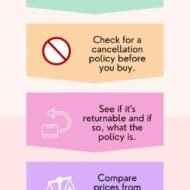Currently Browsing: Financial Management
Posted by Managementguru in Business Management, Financial Management, How To, Online Shopping, Sales
on May 23rd, 2023 | 0 comments

The world has witnessed a remarkable surge in the popularity and adoption of Android POS machines. These innovative devices have rapidly become a prominent trend in various industries, revolutionizing how businesses handle transactions and interact with customers. Android POS machines, equipped with the power and versatility of the Android operating system, offer advanced features and capabilities that streamline and enhance the payment process. This growing trend can be attributed to several factors. Firstly, Android POS machines provide a user-friendly interface, making them accessible to businesses and customers. They offer seamless integration with existing systems, allowing for efficient inventory management, sales tracking, and customer data management. Moreover, the flexibility and customization options of Android POS machines enable businesses to tailor their functionalities to specific industry needs, providing a personalized experience. Here we will discuss an Android POS machine, how it works, and how you can apply for a POS card swipe machine. Read on! What is an Android POS Machine? Android POS machines are designed to facilitate secure and convenient transactions between businesses and customers. An Android POS machine, short for Point of Sale, is a portable device that combines the functionality of a cash register, payment terminal, and inventory management system. It operates on the Android operating system, making it versatile and user-friendly. These machines typically consist of a touchscreen display, a barcode scanner, a receipt printer, and connectivity options such as Wi-Fi, Bluetooth, or mobile data. Benefits of Installing Android POS Billing Machine Installing an Android POS billing machine offers several benefits for businesses: Android POS machines enable quick and hassle-free payment processing, reducing customer waiting times and improving overall efficiency. Businesses can accept various payment methods, including credit cards, debit cards, mobile wallets, and contactless payments, providing convenience to customers and expanding sales opportunities. Android POS machines can track inventory in real time, helping businesses optimize stock levels, prevent stockouts, and streamline reordering processes. These machines generate detailed reports and analytics on sales, allowing businesses to gain insights into top-selling products, customer preferences, and overall performance, facilitating data-driven decision-making. Android POS machines offer personalized and efficient service, enabling businesses to provide customized discounts, loyalty programs, and seamless checkouts, improving customer satisfaction. With their portable design and wireless connectivity options, Android POS machines can be used anywhere within business premises, at events, or even for on-the-go sales, providing flexibility and convenience. These machines can integrate with other business software, such as accounting systems or customer relationship management (CRM) tools, simplifying processes and reducing manual data entry. Android POS systems can easily accommodate the growth and expansion of businesses, allowing for adding multiple devices or locations as needed. From Where Can You Apply for a POS Card Swipe Machine? There are several options available to apply for an POS card swipe machine: Many payment service providers offer Android card swipe machines as part of their services. You can approach popular providers to apply for a POS card swipe machine. Banks often offer merchant services, including Android card swipe machines, to their business customers. Contact your bank to inquire about their POS machine offerings and application process. E-commerce and online marketplaces may have dedicated sections where you can explore and apply for Android card swipe machines. Some manufacturers of Android POS machines may sell their devices directly to businesses. Research reputable manufacturers and visit their websites to check if they offer direct sales or can connect you with authorized resellers. How to Apply for Android POS Billing Machine? Explore different payment service providers, banks, or manufacturers that offer Android POS machines. Compare their features, pricing, and customer reviews to find a suitable option for your business. Prepare the necessary information...

Posted by Managementguru in Cyber Security, E Commerce, Financial Management, How To, Online Shopping, Technology
on Mar 12th, 2023 | 0 comments

Research the Company Before Purchasing One of the most important things to remember when shopping online is to do your homework. It is critical to ensure that the company is trustworthy and reliable. Take your time reading other customers’ reviews and researching the company’s history. This can assist you in determining whether or not a company is a good fit for you. By conducting your research, you can ensure that your purchase is secure and that you will receive the product you desire. Take Advantage of Sale Days Online shopping can help you always get the best deal. Take advantage of sale days such as Black Friday and Cyber Monday, as well as special promotions. Companies are offering discounts and deals on their products that you will not find at any other time. Sign up for newsletters and use tools like price-tracking websites to stay on top of the best sales. In addition, some stores will match prices if they find the same items cheaper elsewhere. So, spend a few minutes researching the items you want and seeing if you can get a better deal online. It may be tempting to do a quick digital shopping trip on Amazon while sipping a latte at your favourite coffee shop, but if you use public Wi-Fi, you risk compromising your data and financial information. If you’re using an unsecured Wi-Fi connection, you may be sending sensitive data without realising it. Patient hackers who have connected to the same Wi-Fi network are looking for opportunities to steal data from public users. If you’re on the go and can’t get home before you buy, she recommends using your mobile data plan and avoiding public Wi-Fi entirely. If you must do some online shopping while out and about, consider investing in a virtual private network (VPN), which is typically more secure than public Wi-Fi. However, we strongly advise you to wait until you get home before making a purchase. Create an Online Shopping Budget Online shopping can be a great way to save money and find great deals, but remember to set and stick to a budget. Always ask yourself if you really need it before making a purchase, and then consider how much you can afford to spend. This will assist you in avoiding impulse purchases, which can quickly add up. Check for Discount Codes and Coupons Many online stores provide discounts and special offers on their products, but you may have to look for them. Take a few minutes before making a purchase to look for discount codes online. You can look for these codes on the store’s website or through coupon websites. This way, you can save money and get the best deal possible on your purchase. Take Advantage of Free Shipping Offers One of the many advantages of shopping online is that many stores offer free shipping if certain conditions are met. For example, you may be eligible for free shipping if you spend a certain amount of money, purchase a certain number of products, or simply sign up for their newsletter. Taking advantage of these deals can help you save a lot of money, so check the store’s website before making a purchase to see if you can get free shipping. Shop on trusted websites It’s unavoidable—there will come a time when you’ll be shopping online for something and come across a site that looks…off. If you’ve ever come across a website that makes you nervous, trust your instincts. Many websites have been created with the sole purpose of defrauding online consumers and taking advantage of our desire to get a good deal. Consumers should ensure that the web...

Posted by Managementguru in Business Management, Entrepreneurship, Financial Management, Project Management, Startups
on Feb 1st, 2023 | 0 comments

Business loan becomes necessary when you plan to start up your own venture. Many of us are unaware of the loan schemes our government has been offering for small businesses to assist them in jump starting their plan of action. Given the importance of the MSME sector in India, the government provides numerous credit schemes to help both organised and unorganised businesses in the economy. These programmes provide much-needed financial assistance to small and medium-sized businesses, assisting with operations and driving growth at low Business Loan interest rates. These are critical for easy access to capital, assisting in the conversion of profitable business ideas into profitable ventures. Coaching Workbook – Build Your Self Confidence to Reach Your Goals | Best Seller Business Loans and Their Uses Purchase of raw material Upgrade machinery or equipment Build working capital Pay salaries and other financial obligations Expand the workplace Invest in marketing Entering new market Launch new products or services Hire or train employees Social Media Holiday Calendar – The Complete List of Social Media Holidays | Best Seller Popular Business Loan Schemes by the Indian Government It is estimated that there are 633.9 lakh MSMEs in India. The Micro sector includes 630.5 lakh enterprises, accounting for over 99% of the country’s total number of MSMEs. Source – India’s MSME Sector – IBEF 1. MSME Loan Scheme in India In India, the MSME loan scheme is a government initiative that provides financial assistance to small and medium-sized businesses. This loan programme is intended to provide businesses with access to capital so that they can expand their operations and increase their productivity. All registered MSMEs, including sole proprietorships, partnerships, and companies with an annual turnover of up to Rs. 2 crore, are eligible for the scheme. Depending on the eligibility criteria, the loan amount can range from Rs. 10 lakhs to Rs. 1 crore. Loan rates are typically very competitive, and repayment terms can range from one to seven years. The MSME loan scheme is an excellent way for businesses to obtain the capital they require to expand and develop their operations. 2. MUDRA Loan Scheme The Indian Government launched the MUDRA (Micro Units Development and Refinance Agency) Loan Scheme in 2015. This programme gives small and micro businesses access to financing to help them grow and become profitable. Shishu (up to Rs. 50,000), Kishore (up to Rs. 5 lakhs), and Tarun loans are available (up to Rs. 10 lakhs). Public and private sector banks, regional rural banks, and microfinance institutions all offer MUDRA loans. Loan terms differ from one institution to the next, but they may include flexible repayment options, collateral-free loans, and low interest rates. MUDRA loans have assisted millions of Indian entrepreneurs and small businesses in starting and growing their businesses. 3. Credit-Linked Capital Subsidy Scheme The Credit-Linked Capital Subsidy Scheme (CLCSS) is a scheme launched by the Government of India in 2000 to make capital more accessible to small and medium-sized businesses (SMEs). The scheme’s goal is to provide capital subsidies to these businesses in order for them to modernise their manufacturing processes, resulting in increased productivity and competitiveness. The Ministry of Micro, Small, and Medium Enterprises oversees the scheme (MSME). The CLCSS provides SMEs with a 15% capital subsidy when they purchase new machinery and equipment to modernise their production processes. The subsidy is provided to eligible SMEs in the form of a one-time credit-linked subsidy at the time of purchase of new machinery and equipment. The scheme has aided SMEs in modernising their production processes, resulting in increased productivity and competitiveness. 4. Support Schemes from the National Small Industries Corporation (NSIC) The National Small Industries Corporation (NSIC)...

Posted by Managementguru in Financial Management, How To, Personal Finance
on Aug 7th, 2022 | 0 comments

A small intro to personal finance is inevitable before we explain the 50/30/20 budget rule. Why Is Personal Finance Important? Learning Personal Finance not only helps you to manage your day-to-day financial needs but also aids in planning your financial future. The sooner you get a hold on personal finance, the better your long-term financial prospects will be for things like investing or planning for retirement. What are the 5 main components of personal finance? SavingInvestingFinancial protectionTax SavingRetirement planning The Pathway to Financial Freedom – The 5 Golden Rules of Money Let us understand what the financial experts say about how to handle money when it comes to your pocket. Payday is not only mayday but also hayday. You have to streamline your income in order to lead a hassle free and peaceful life. Rule # 1: Spend Less Than You Earn or Earn More Than You Spend Rule # 2: Create an Emergency Fund Rule #3: Save or Invest the Rest Rule #4: Capitalize on Your Skills & Create a Side Endeavor Rule #5: Own Income Generating Assets That Create Passive Income Streams The ideas listed above are truly practical in nature and works out 100% of the time. Passive income is equally important as this income stream might become your mainstream income during a dire need. We have compiled an amazing Budget Planner for your ready reference. Download and Enjoy. 👇 Tell us if you found it useful. Simple-Monthly-Budget-PlannerDownload What is the 50/30/20 Rule of Budgeting? Given below is the thumb rule for budgeting and this method is good for beginners or those who suck with money. This cheatsheet will teach you how to “Live within your means.” The beauty of 50/30/20 budget is in its simplicity. All the income is broken up into three spending buckets. 50% for the needs, 30% for wants and 20% for savings and debt. The Split 50% Needs Health life, disability and other insuranceCar insurance, maintenance and gasMedical bills and prescriptionsUtilities phone and internetPublic transportationDaycare and tuitionMortgage/rentGroceries 7 Ways to Increase Your Income! #reels 30% Wants GiftsTravelCable TVEating outCharitable donationsMakeup and hair productsHome decor and furnitureClothes, shoes and accessoriesMovie, sports and concert ticketsStreaming services and other subscriptions Signs You’re A Lot Better With Money Than You Think! #reels 20% Savings Retirement savingsPersoanl loan paymentsShort term savings goalsEducation fund What are some practical budgeting guidelines to follow? Read on to find out what budget percentages popular financial guru Dave Ramsey recommends. Here’s a breakdown of each category, based on Dave Ramsey’s advice: Giving — Ramsey recommends giving 10% of your monthly income to worthy causes.Saving — Saving 10% of your income for retirement, which ideally is within a 401(k) or IRA.Food — Includes both grocery shopping and eating out.Utilities — Cell phone, cable, internet, gas, and electricity.Housing costs — Rent or mortgage payment, along with property tax, home or renters insurance, home maintenance, HOA fees, and PMI.Transportation — Any and all transportation costs, including public transportation, car insurance, oil changes, car payment, gas, DMV fees, and parking.Health — Medical and health care bills (not including health insurance premiums) such as co-pays for doctor visits, prescriptions, and dental care.Insurance — Life insurance, health insurance, and disability insurance. Auto insurance and home insurance is placed within transportation and housing categories. Recreation — This is your fun money. Any lifestyle expenses, such as gym memberships or kids’ activities, as well as entertainment expenses like Netflix, Hulu, sporting events, concert tickets, babysitters, and travel.Personal spending — Personal care, haircuts, Amazon purchases, clothes, shoes, home furnishings, home decor, etc.Miscellaneous — The “stuff you forgot to budget for” category. The Complete Personal Finance Course: Save, Protect, Make...

Posted by Managementguru in Business Management, Financial Management, How To, How to make money online, Personal Finance, Real Estate Investment
on May 29th, 2022 | 0 comments

Commodity trading is a term used frequently in the investment world. Aside from equities, markets also trade a variety of commodities, which can help you diversify your portfolio and increase profits. Commodities, due to their fluctuating prices over time, can produce good long-term returns if invested wisely. What are Commodities? Commodities are the primary raw materials used to make everyday goods. Commodities, which include products like oil, sugar, metals, and so on, are the foundation of a global economy. There are four basic categories of commodities traded in India (see table below). Commodity Category Energy – Oil and Natural GasBase Metals – Copper Aluminium, Zinc, LeadBullion – Gold and SilverAgriculture – Cotton, Black Pepper, Rubber, Cardamom and Oil. Gold, corn, crude oil, coffee, wheat, and other commodities are among the most widely traded worldwide. The change of one commodity’s price has an impact all across the world. When crude oil prices rise, for example, the effect is felt all around the world. How To Start Trading in Commodities? To begin with commodity trading, the first step is to know about the types of commodities that exist (mentioned above). Then you need to: Open a Demat Account with a Reputed Stockbroker You’ll need a demat account to trade commodities, just like you’ll need one to trade stocks. While there are numerous brokerage houses where you may register an account, it is critical to choose a reputable organisation that can provide you with important trade suggestions. To navigate the commodity market maze, you’ll need the right information and advice. It’s also critical to choose a brokerage with competitive prices. Selecting a broker with a high brokerage fee can reduce your profits. Examine the services provided by the broker through its platform. A full-service broker is best for you because they have a team of professionals who provide in-depth research and recommendations on a regular basis. Deposit an Initial Amount You must make an initial deposit after you have opened an account. The deposit amount varies depending on the commodity you are trading and ranges from 5% to 10% of the contract value. This information can be found on the brokerage firm’s official website. You must keep a sufficient cushion to cover any potential losses. Commodity trading plans that help you better understand markets and your risk appetite are also vital. In terms of risk preferences and cash flow, each trader is unique. You make a decision based on your financial situation. Different Ways to Trade in Commodities Direct Investment It is the most prevalent method of commodity investment. You can, for example, acquire gold and silver coins and jewellery immediately. Direct investing in these things, on the other hand, has a significant transaction cost. There are also concerns about storage and purity. Purchase Stocks This is another method of commodity trading. You can acquire stocks in an energy company, for example, if you want to trade energy. The price of energy will be clearly indicated by the stock price. If you invest in commodities through direct stocks, you can make money even if the commodity isn’t performing well. For example, if you buy shares in a well-established energy company, even if energy prices fall, you can still profit due to the company’s strong fundamentals. Loading… Commodity ETFs and Mutual Funds Commodity-based ETFs and mutual funds are many. If you wish to invest in gold or silver, for example, you can buy gold or silver ETFs. Because ETFs are maintained electronically in your demat account, there are no purity or storage difficulties. Bottom Line Commodity trading can be profitable provided you understand the fundamentals and appropriately determine your risk tolerance. To get...










